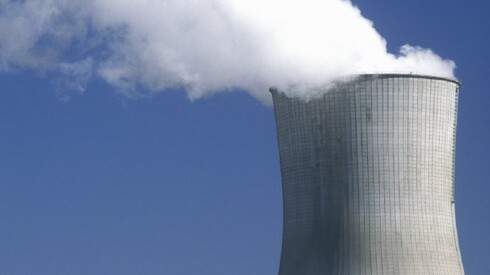-
The experimental turbine is a key part of Maine's efforts since the late 2000s to develop commercial offshore wind projects in the Gulf of Maine, which is too deep for turbines that mount directly on the seafloor.
-
Louisiana and South Carolina each rose nine spots on the 2025 State Energy Efficiency Scorecard, complied by the American Council for an Energy-Efficient Economy. It ranks states according to a number of policies and metrics.
-
At Central New Mexico Community College, the only program of its kind in the state is training solar panel installers at a time when clean energy jobs are growing at more than twice the rate of overall U.S. employment.
More Stories
-
The Maryland Energy Administration offered grants to 11 colleges and universities to install solar panels and draft strategies to incorporate renewable energy into academics and workforce preparation.
-
The evolution of artificial intelligence, which requires massive amounts of energy to function, is forcing government, utilities and tech suppliers to face the question of whether power grids can keep up.
-
Hamilton Avenue School in Greenwich, Conn., was the target of an "astroturfing" email campaign that lobbied public officials to reject a $5.25 million project to replace the school's geothermal energy system.
-
A 2023 Michigan law gives the state authority to permit large-scale wind, solar and energy storage projects, but local governments can retain some permitting authority by passing their own compatible ordinances.
-
A funding freeze for the U.S. Environmental Protection Agency is holding up an estimated $500 million allocated to clean energy projects, and federal officials are ignoring court orders to restore access to the funding.
-
The university will be the first in the country to house commercial-scale nuclear reactors. State and industry leaders noted the increasing demand for electricity amid the rise of AI and other energy-intensive technologies.
-
The U.S. Department of Agriculture is giving a Columbus, Neb.-based electric cooperative the investment as part of its Empowering Rural America Program. It will fund wind and solar projects across three counties.
-
California saw some of its steepest reduction in greenhouse gas emissions in the transportation sector, which has long been the single largest source of climate-warming pollution. Meanwhile, its economy grew.
-
For New York City's largest solar project to date, a San Francisco-based investment firm will cover installation and maintenance while the city buys $85 million in solar power from the panels over the next two decades.
-
The 2024 Republican platform could have a ripple effect on climate change research. Two California university researchers say the next four years will be stressful, but technological innovations give them hope.
-
The U.S. Department of Energy has chosen Nevada Gold Mines to get as much as $95 million for a solar project. It intends to construct solar photovoltaic and battery energy storage systems at mines in Humboldt and Lander counties.
-
A Pennsylvania school district is pulling the plug on a multi-million dollar effort at alternative energy production that turned out not to be a good investment after natural gas prices didn't skyrocket as expected.
-
Thanks to grants secured by the Green Team at Chippewa Falls High School in Wisconsin, the Hope Village community center and its 10 tiny homes will install a 40 kilowatt photovoltaic system.
-
Texas A&M University is seeking approval to sell land to nuclear energy companies as a solution to power-supply problems in Texas. It may become the first U.S. university to have a commercial nuclear reactor site license.
-
Between its new $6.2 million 17-acre solar array to power campus buildings and the electricity it gets from hydropower from the New York Power Authority, Niagara University's carbon footprint is net zero.
-
This is the third consecutive year Rose-Hulman Institute of Technology in Terre Haute, Ind., has been honored as one of America’s best “Green” colleges. The Princeton Review cites Rose-Hulman in the 2025 edition of the Guide to Green Colleges.
-
Groveland Township leaders are working to set standards for a proposed battery storage facility before the state assumes control of project approvals. A recent state law effectively keeps locals from enacting renewable projects rules that are more restrictive than state laws.
-
Sila Nanotechnology is renovating a factory in Moses Lake, Wash., to make silicon anodes for lithium-ion batteries. Officials must train the skilled workforce the renewable energy industry needs, and they must secure energy sources.




























